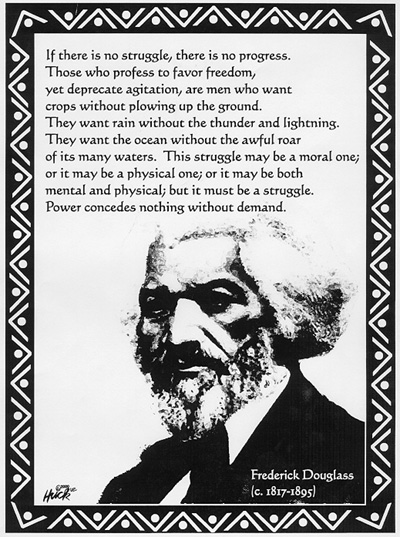|
By Mitchell Brown
Louisiana State University

The remarkable life and journey of Martin Luther King, Jr. began at
noon Tuesday, January 15, 1929, in the family home on Auburn Avenue in
Atlanta, Ga.
King is one of the most vital personalities of modern American and
world history. His lectures and remarks stirred the concern and
sparked the conscience of a generation.
The movements and marches King led brought significant changes in
the fabric of American life and his courageous and selfless devotion
gave direction to 13 years of civil rights activities. Even to this
day, King's charismatic leadership inspires men and women, young and
old, and the rich and poor across the United States and around the
world.
King was the first son, and second child, born to the Rev. Martin
Luther King Sr. and Alberta Williams King. King had a sister,
Christine King Farris, and a brother, the late Rev. Alfred Daniel
Williams King.
King married the former Coretta Scott, younger daughter of Obadiah
and Bernice McMurray Scott of Marion, Ala. on June 18, 1953. The
marriage ceremony took place on the lawn of the Scotts' home in
Marion. The elder King performed the service with Edythe Bagley, the
sister of Mrs. King, maid of honor and Rev. A. D. King, the brother of
Martin Luther King, Jr., best man.
Four children were born to King and his wife. They were Yolanda
Denise, 1955; Martin Luther III, 1957; Dexter Scott, 1961; and Bernice
Albertine, 1963.
King began his education at the Yonge Street Elementary School in
Atlanta. Following Yonge, King was enrolled in the David T. Howard
Elementary School. He also attended the Atlanta University Laboratory
School and Booker T. Washington High School.
Because of his high score on the college entrance examinations in
his junior year of high school, King advanced to Morehouse College
without formal graduation from Booker T. Washington. Having skipped
both the ninth and 12th grades, King entered Morehouse at
the age of 15.
In 1955, King earned his doctorate degree with his dissertation,
"A Comparison of God in the Thinking of Paul Tillich and Henry
Wieman."
King entered the Christian ministry and was ordained in February
1948 at the age of 19 at Ebenezer Baptist Church, Atlanta. Following
his ordination, King became assistant pastor of Ebenezer. Upon
completion of his studies at Boston University, King accepted the call
of Dexter Avenue Baptist Church, Montgomery Ala.
From September 1954 until November 1959, King was the pastor of
Dexter Avenue until he resigned to move to Atlanta to direct the
activities of the Southern Christian Leadership Conference. From 1960
until his death in 1968, he was co-pastor with his father at Ebenezer
Baptist Church and President of the Southern Christian Leadership
Conference.
By this time King was clearly becoming the pivotal figure in the
civil rights movement in America. He was elected president of the
Montgomery Improvement Association, the organization that was
responsible for the successful Montgomery bus boycott from 1955 to
1956 (381 days) and was arrested 30 times for his participation in
civil rights activities.
King was a founder and president of Southern Christian Leadership
Conference from 1957 to 1968. He was also vice president of the
national Sunday School and Baptist Teaching Union Congress of the
National Baptist Convention.
During his life, King received several hundred awards for his
leadership in the civil rights movement. Most notable among them were:
The Springarn Medal from NAACP, 1957.
Named Man of the Year by Time, 1963.
The Nobel Peace Prize in 1964.
The Rosa L. Parks Award, presented by the Southern Christian
Leadership Conference (posthumously), 1968.
King's concept of "somebodiness" gave black and poor
people a new sense of worth and dignity. His philosophy of nonviolent
direct action, and his strategies for rational and nondestructive
social change, galvanized the conscience of the United States to
reorder its priorities.
The Voting Rights Act of 1965, for example, went to Congress as a
result of the Selma-to-Montgomery march. King's wisdom, words,
actions, commitment and dream for a new cast of life are intertwined
with the American experience today.
King's speech at the march on Washington, D.C. in 1963; his
acceptance speech of the Nobel Peace Prize; his last sermon at
Ebenezer Baptist Church; and his final speech in Memphis are among his
most famous utterances. "The Letter from Birmingham Jail"
ranks among the most important American documents and essays in
American history.
While in Memphis, Tenn., in 1968 to help lead sanitation workers
trying to organize a union, King was shot while standing on the
balcony of the Lorraine Motel on April 4. Two months later, James Earl
Ray was arrested in London, England, and returned to Memphis to stand
trial for the assassination of King.
On March 9, 1969, before coming to trial, Ray entered a guilty plea
and was sentenced to 99 years in the Tennessee State Penitentiary.
King's funeral was held April 9, in Atlanta at Ebenezer Church and on
the campus of Morehouse College. President Lyndon Johnson proclaimed
that day a day of mourning and flags were flown at half-staff.
The area where King is entombed is located on Freedom Plaza and
surrounded by the Freedom Hall Complex of the Martin Luther King Jr.
Center for Nonviolent Social Change Inc. The Martin Luther King Jr.
Historic Site, a 23-acre area was listed as a National Historic
Landmark on May 5, 1977, and was made a National Historic Site on
October 10, 1980, by the U.S. Department of Interior.
Reprinted from Metro Detroit Labor News.
"... when people get caught up with that which is right and
they are willing to sacrifice for it, there is no stopping point short
of victory." - Martin Luther King, Jr.
|

